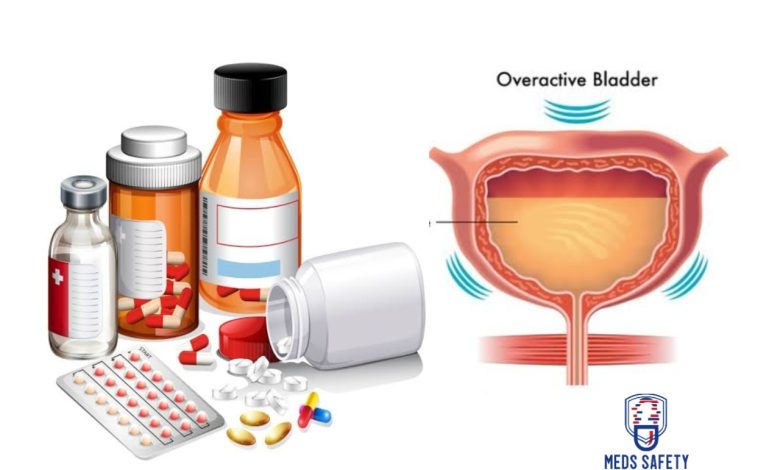Medications to Avoid When Living With Overactive Bladder (OAB)

Overactive Bladder (OAB) is a common urinary condition that can significantly impact a person’s quality of life. It is characterized by a range of symptoms that primarily revolve around an increased urgency and frequency of urination. People with OAB often experience a sudden and intense urge to urinate, even when their bladder might not be full. This urge can be challenging to control and may lead to instances of leakage or incontinence, which can be embarrassing and distressing.
The underlying causes of OAB can be complex and multifaceted. Muscle contractions in the bladder play a central role. Usually, the bladder muscle remains relaxed as it fills with urine and only contracts when it’s time to empty. In individuals with OAB, these contractions can become involuntary and more frequent, causing the urge to urinate even when the bladder contains only a small amount of urine. Neurological factors, changes in bladder sensitivity, and alterations in the signaling between the brain and the bladder can contribute to these muscle contractions.
Triggers for OAB symptoms can vary from person to person. Certain foods and drinks can exacerbate symptoms by irritating the bladder lining or increasing urine production. Lifestyle factors such as obesity, smoking, and certain medications might also influence the severity of OAB. While OAB is more common in older adults, it can affect people of all ages. It is a common medical condition in the United States, affecting a significant portion of the population. The exact prevalence of OAB can vary based on different factors, including age, sex, and study methodologies. However, it’s estimated that around 33 million adults in the U.S. experience symptoms consistent with OAB.
OAB is more prevalent among older adults, with the risk increasing as individuals age. Women tend to be more affected than men, although both genders can experience the condition. It’s important to note that prevalence rates can change over time due to factors such as shifts in demographics, increased awareness, and advancements in medical diagnosis.
While lifestyle modifications and behavioral therapies play a vital role in managing OAB, understanding the potential impact of medications on OAB symptoms is equally important. This article delves into the medications to avoid when living with OAB and provides insights into alternative strategies for effective symptom management.
Medications and OAB
Certain medications can potentially exacerbate OAB symptoms due to their effects on the bladder, nerve signaling, and fluid balance. It’s essential to consult a healthcare professional before making any changes to your medication regimen, as each individual’s response to medications can vary. Here are some medication categories to consider when managing OAB:
1. Diuretics: Diuretics, commonly known as “water pills,” are prescribed to increase urine output. While these medications might be necessary for specific conditions, they can worsen OAB symptoms by increasing urinary frequency and urgency. If you have been prescribed diuretics, discussing alternatives or adjusting the timing of medication with your doctor could help mitigate their impact on OAB.
2. Anticholinergic Medications: These medications are commonly used to treat OAB by relaxing bladder muscles and reducing urgency. However, they can also lead to side effects such as dry mouth, constipation, and cognitive changes. It’s essential to strike a balance between the benefits and potential side effects when considering anticholinergic medications.
3. Certain Antidepressants: Some tricyclic antidepressants and selective serotonin reuptake inhibitors (SSRIs) might affect bladder function and contribute to urinary retention or exacerbate OAB symptoms. If you’re taking antidepressants and experiencing worsened OAB, discussing alternative medications with your mental health provider is recommended.
4. Alpha-Blockers: Alpha-blockers, often prescribed for conditions like hypertension and benign prostatic hyperplasia, can relax bladder neck muscles, potentially leading to increased urinary urgency and frequency in individuals with OAB.
5. Caffeine-Containing Medications: Medications that contain caffeine, such as certain pain relievers and migraine medications, can stimulate the bladder and worsen OAB symptoms. Be sure to read labels and consult your healthcare provider if you’re concerned about the caffeine content in your medications.
Alternative Strategies
While it’s crucial to communicate with your healthcare provider before making any medication changes, there are several alternative strategies that can complement your OAB management plan:
1. Medication Adjustment: If you suspect that your current medications are exacerbating OAB symptoms, consult your doctor to explore alternative medications or dose adjustments that could minimize their impact.
2. Lifestyle Modifications: Implementing lifestyle changes like dietary adjustments, pelvic floor exercises, and timed voiding can significantly improve OAB symptoms. Reducing caffeine and alcohol consumption, maintaining a healthy weight, and staying hydrated can also positively impact bladder function.
3. Behavioral Therapies: Techniques like bladder training, where you gradually increase the time between bathroom trips, can help retrain the bladder and improve its capacity to hold urine.
4. Pelvic Floor Exercises: Strengthening the pelvic floor muscles through exercises like Kegels can enhance bladder control and contribute to better OAB management.
5. Mind-Body Practices: Relaxation techniques, such as deep breathing, meditation, and yoga, can help manage stress and anxiety that might exacerbate OAB symptoms.
Conclusion
Living with Overactive Bladder requires a holistic approach that considers medication management alongside lifestyle modifications and behavioral strategies. While some medications might exacerbate OAB symptoms, informed discussions with healthcare professionals and proactive self-care can lead to effective symptom management. By staying informed about potential medication impacts and implementing alternative strategies, individuals with OAB can regain control over their bladder function and enjoy an improved quality of life.





